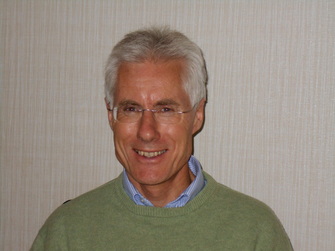|
Dr. Jonathan Hardy M.A.,B.M.,F.F.Hom.
Homeopathic Physician My first degree was in Zoology and I obtained an honours degree from Oxford University in 1978. I then attended medical school at Southampton University and qualified in medicine in 1984. After working as a junior doctor in hospital medicine at St Mary's Hospital in Portsmouth I began training in Homeopathy. I have been in full-time practice as a Homeopathic doctor since 1986. I am a Fellow of the Faculty of Homeopathy and served for many years as the Independent Practitioners' Representative on the Faculty Council. Why I became a Homeopath When I was a medical student at Southampton University we had to conduct some original research. I chose to do a trial of the Homeopathic treatment of house dust allergy, which causes sneezing and itchy eyes. It has even been used as an excuse by teenagers for not making their beds! The trial showed a statistically significant benefit of the Homeopathic remedy compared to a placebo ( blank pills with no active ingredient). Several of the patients experienced permanent relief of their symptoms. My supervisor, who became a well known professor of respiratory medicine, was amazed and impressed. The results were so conclusive that they were one of the reasons I chose to enter full-time Homeopathic practice shortly after qualifying in medicine in 1984. I have never regretted doing so. My personal experience is that Homeopathy is a wonderful system of healing. One of its great advantages is that it can actually promote well-being. As well as relief of physical symptoms, patients will usually feel an increase of energy, improved mood and often say that they really feel once again like their old selves. What is Homeopathy? Homeopathy has been used in many countries for two hundred years. Homeopathic medicines help us to overcome disease by stimulating the body's natural healing abilities. The aim of the Homeopathic approach to illness is to remove the cause of the disease at its source. As the remedies increase our vitality we feel better - more like "our old selves". Homeopathic medicines are prepared from naturally occurring substances, mainly minerals and plants, and are without side effects. The Word 'Homeopathy' is formed from two Greek words and essentially means "like can cure like". As an example, a Homeopathic remedy prepared from onions is used for the well-known symptoms that onions can cause: stinging, watering eyes and sneezing. The process of preparing the plant into a Homeopathic remedy removes any toxic effects the crude substance might have. Is there evidence it works? There is a growing body of evidence for the effectiveness of Homeopathic medicine - this includes randomized controlled trials which are the gold standard of medical evidence. By the end of 2014, 189 randomized controlled trials of Homeopathy on 100 different medical conditions had been published in peer-reviewed journals. Of these, 104 papers were placebo-controlled and were eligible for detailed review: 41% were positive – finding that Homeopathy was effective in a range of conditions including rheumatism, allergic rhinitis, vertigo, fibromyalgia, arthritic pain and sinusitis. 5% were negative – finding that Homeopathy was ineffective. 54% were inconclusive. How does this compare with evidence for conventional medicine? An analysis of 1016 systematic reviews of RCTs of conventional medicine had strikingly similar findings: 44% were positive – the treatments were likely to be beneficial. 7% were negative – the treatments were likely to be harmful. 49% were inconclusive – the evidence did not support either benefit or harm. It is remarkable that research shows such a similar level of efficacy between Homeopathy and conventional medicine. Patient outcome studies have also shown the benefit of Homeopathy. Patient outcome studies are a form of evidence which NICE - the National Institute for Clinical Excellence - has highlighted as a key form of clinical evidence. In 2013 a patient outcome study at Bristol Homeopathic Hospital found 70% of 6,500 patients experienced improvement in their health; eczema, migraine headaches, irritable bowel syndrome, arthritic pain and fatigue all improved. So there is evidence that Homeopathy works, but how? The method of preparation of Homeopathic remedies involves a process of repeated stages of dilution with vigorous shaking of the solution at each stage of the dilution process. Evidence is growing that water is capable of storing information relating to substances with which it has previously been in contact. For example, a number of European laboratories have shown that very high dilutions of the substance called histamine can exert biologically significant effects on the white blood cells that take part in the immune response. In addition Dr. Luc Montagnier, the French virologist who won the Nobel Prize in 2013, supports Homeopathy. In an interview published in Science Magazine of December 24, 2013 Professor Montagnier said “The high dilutions used in Homeopathy are right. High dilutions of something are not nothing. They are water structures which mimic the original molecules." It has been suggested that Homeopathic medicines work by stimulating the individual’s vitality. It is vitality which keeps us alive and keeps us healthy. But when that vitality is depleted, weakened or imbalanced, then we become ill, in fact that is what illness is. After that happens we start developing mental and physical symptoms. The aim of a well-chosen Homeopathic medicine is to reverse that process of depletion and imbalance, setting the person (or animal) back on the road to recovery. Homeopathic remedies are very safe. They are also very cost effective: studies have shown that the purchase costs of orthodox drugs fall after the introduction of Homeopathy to doctors’ practices. In fact research trials show that on average when Homeopathy is combined with conventional treatment for chronic complaints, both the number of drugs used and the cost of treatment can be halved. |
Contact Us:
|
